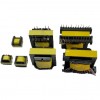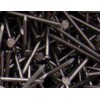Note: This is an introduction to the import and export regulations in China. The following document will outline some of the issues you should consider if you wish to import goods into or export goods from China. As Chinese foreign trade regulations are complex and continually changing, please be aware that this is not an exhaustive discussion of the subject matter.
importing to China?
What is required for importing goods into China?
In order to purchase imported goods, an importer in China must have:
a. authorisation from the various governmental bodies;
b. sufficient foreign exchange; and
c. an import license (in some cases).
What authorisation does an importer need to obtain?
An importer in China must acquire approval from the following governmental bodies before purchasing imported goods:
a. the supervising organisation The importer must get approval, at either the county or the municipal level, from the industrial bureau or the industrial corporation that normally administers its activities.
b. the state planning commission (SPC) The State Planning Commission determines the general economic plans for each region and any proposed imports must be consistent with the State Planning Commission's economic development policies. Basically, the SPC determines the pattern of development in various industries and assigns foreign exchange accordingly. More specifically, it is charged with approving the construction of new factories and the importation of equipment and machinery for these factories.
c. the economic commission The Economic Commission carries out the economic directives of the State Planning Commission. once the State Planning Commission decides a product will be imported in order to fulfil one of its economic objectives, the Economic Commission determines which enterprise will import the product. An importer must have the approval of the Economic Commission before purchasing imported products.
d. the Ministry of Foreign Trade and Economic Cooperation (MOFTEC) The MOFTEC and its regional branches oversee state foreign trade companies (FTC). As well, this governmental body develops and executes import and export plans for each region, along with the State Planning Commission.
e. Foreign Trade Companies (FTCs) An importer in China can have a state FTC sign the import contract with the foreign supplier as an agent of the importer. A FTC may supply an importer foreign exchange quota if the importer lacks foreign exchange, if the purchase is consistent with the general economic plan of the region and considered to be profitable.
When is an import license required?
An import license is required for the importation of some goods. Any importer should refer to the MOFTEC's current list of "restricted goods" that require import licenses. An import license is most often required where:
a. a good is listed by MOFTEC as a "restricted good" that requires an import license;
b. an importer does not have foreign trade rights; or
c. a FTC imports goods that are beyond its business scope as authorised by the government.
In the following situations, an import license is not normally required:
a. where a state foreign trade company imports goods that are within its business scope as authorised by the government;
b. imported goods under agreements that have been approved by a relevant governmental body (Ministry, commission, provincial government) for compensation trade, processing, assembly, or engineering projects outside China; or
c. imported goods which are samples from foreign businesses,
d. urgently needed products as authorised by the MOFTEC, and
e. and in some other circumstances, (please refer to The import License Regulations, Art 7(3) and Detailed Implementing Rules).
Who issues import licenses?
The MOFTEC is the governmental body that issues import licenses, and correspondence should be directed to the MOFTEC or one of its regional offices. The MOFTEC has also been empowered to delegate authority to issue import licenses to local governmental bodies and /or officials including: provincial bureaus of foreign economic relations and trade; special representatives in Shanghai, Tianjian, Dalian, and Guangzhou; provincial institutions established by the central government ministries; and Foreign Invested Enterprises (EFI).
How does an importer obtain an import license?
In order to acquire an import license, an importer must first apply to local bureau officials. once the bureau has approved the application, the importer applies to the MOFTEC or another governmental body that is authorised to issue import licenses. The following information must be included in the application: the name of the product to be imported; specifications; unit price; total price; source of the foreign exchange; country of origin; quantity; use of the product to be imported; and the work unit concluding the transaction.
Note: The onus of obtaining of an import license rests on the importer. Chinese Customs Authorities may confiscate or return the goods if the importer has failed to acquire a valid import license.
How long is an import license valid for?
An import license is valid for a term of one year. An importer may apply for an extension if an import is not made within one year.
What are sources of foreign exchange?
The system of managing China's foreign exchange is complicated and continually reforming. Foreign exchange is allocated by the State Planning Commission to various sectors of the economy, according to a quota system. However, over time the Chinese government has been devolving this centralised system of allocating foreign exchange to a more market-oriented approach. A foreign exchange market now exists and importers can convert renminbi to foreign currency, subject to certain controls.
Exporting from China
Who can export from China?
State foreign trade companies (FTCs) carry out most of the exportation of goods from China. They can export products manufactured by third parties and acquire goods for export from the domestic market. Further, a FTC can act as an agent for a domestic manufacturer by signing an export agreement with a foreign purchaser. Foreign Invested Enterprises, including contractual joint ventures, Chinese-foreign equity joint ventures, and foreign-owned businesses, as well as some Chinese manufacturers, are authorised to export. However, these entities can only export goods that they manufacture themselves. They are prohibited from exporting goods manufactured by third parties. Other types of businesses and individuals are required to apply for authorisation from the MOFTEC before they can export goods from China. In practice, these parties often approach FTCs to export goods as their agents, because this method is more expedient than applying for the MOFTEC's approval.
When is an export license required?
A Catalogue of Export Commodities Requiring State-administered Quota licenses, attached to the Export Commodities Measures lists the products that require export licenses. The Catalogue lists 138 categories of goods, and 114 of them require export licenses.
What types of export licenses exist?
There are general licenses and special licenses. Under a general license, a FTC is deemed to have a valid export license for any transaction within its authorised scope of business once it has obtained a single license; hence, there is no need to apply for a license for every transaction. Special licenses are required where any enterprise or individual, including an FTC, wishes to export a good that is restricted under the MOFTEC. The MOFTEC publishes an updated list of restricted items regularly. The MOFTEC may restrict the exportation of a good in the following situations:
a. a quota has been established by the country to which the good is to be exported;
b. the MOFTEC has established a limit on the quantity of goods to be imported to a country so that good the amount of goods exported will not surpass the capacity of that market; or
c. the MOFTEC wishes to limit the exportation of a good in order to effect foreign policy or macroeconomic objectives.;
How do you apply for an export license?
An exporter must submit an application to the MOFTEC. The application must contain the following information: the name of the good to be exported; specifications; per-unit price; total value; method of payment; destination; and delivery date. If the MOFTEC approves the application an export license will be issued.
Note: The onus of obtaining a valid export license rests on the exporter. Goods cannot be shipped until an export license has been issued.
How long is an export license valid?
The term of validity on an export license varies according to the date of delivery in the contract. Normally, the term of an export license expires after approximately 6 months of its issuance. An exporter can apply for an extension of 2 months if the goods are not shipped during its term of validity.







